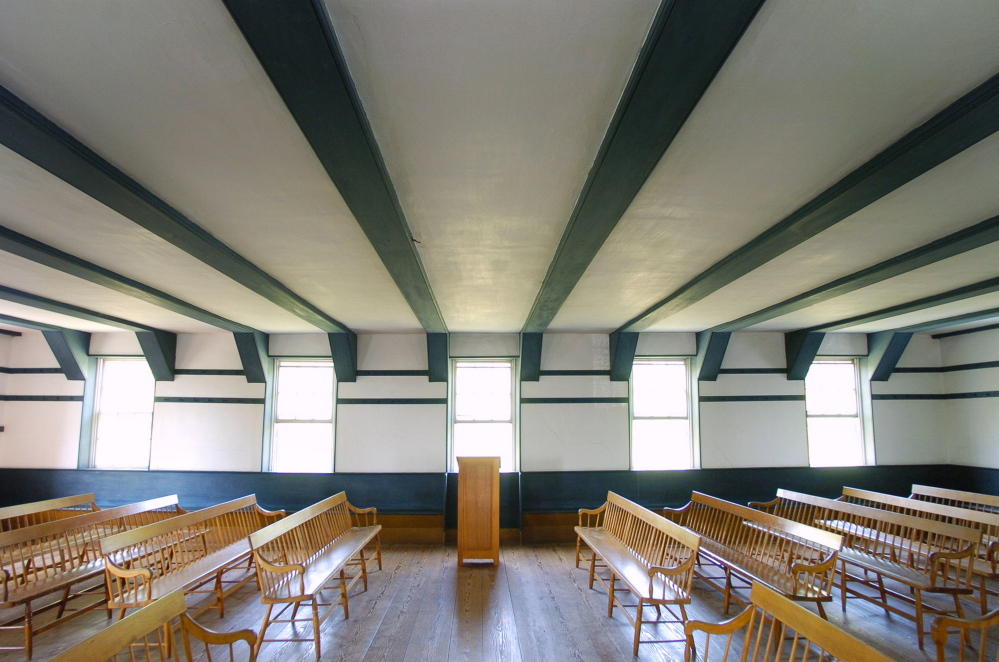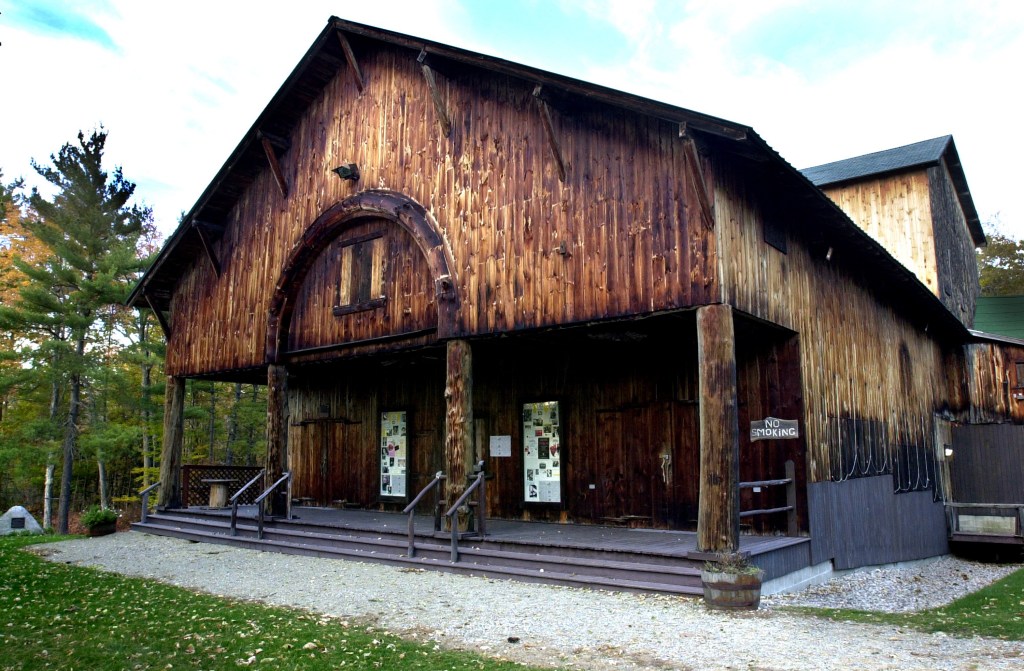For the performance of classical music, is smaller better?
There seems to be a trend in Maine toward smaller, more informal venues. Portland Ovations is staging most of its chamber music concerts at the University of Southern Maine’s Hannaford Hall rather than at Merrill Auditorium. The Portland Chamber Music Festival recently gave its third off-season recital, of three contemporary works for string quartet, at Space Gallery in Portland. The DaPonte String Quartet is fulfilling its community outreach mission with concerts at small venues throughout Maine, including the intimate Rines Auditorium at the Portland Public Library.
Fans of contemporary music have become familiar with the Frontier Cafe in Brunswick, where Joshua DeScherer held his 17th Frontiers of Music event this month. And the number of secular concerts in churches, large and small, such as Portland’s First Parish, Woodfords Congregational and St. Luke’s Cathedral, also seems to be increasing. (There are also maverick classical musicians, including cellist Matt Haimovitz, who choose to play in bars and cafes.)
One reason seems to be an effort to introduce classical music to new audiences. The Portland Chamber Music Festival’s program at Space began with a cocktail hour during which guests could mingle with musicians. Adam Stockman of Space said the show attracted a more mixed audience, including younger patrons, than PCMF’s regular season concerts and has been growing in attendance each year.
The DaPonte programs, along with the Noonday Concerts of the Portland Conservatory of Music at the First Parish Church in Portland, have the same objective.
Another reason is simply audience size. It is disconcerting for a soloist or quartet to play to a house only half full, or less. This has happened in recent years even with classical musicians who have an international reputation.
Acoustics also figure into the equation. Aside from orchestral music and grand opera, most classical pieces outside the church were written for intimate settings. As a general rule, the reputation of the Mormon Tabernacle notwithstanding, the larger the hall, the worse the acoustics.
In this respect, the best venues in Maine are Deertrees Theatre in Harrison, the Shaker Meeting House at Sabbathday Lake in New Goucester and the Old Walpole Meeting House. Deertrees is the largest of the three, but its barn-like construction, with thin sheathing, makes it resonate like a stringed instrument.
Perhaps music is merely returning to its origins. The concert hall is a relatively recent development, which rose to prominence along with a large middle class looking for refined entertainment.
One of the first such halls in London was a room above a charcoal monger’s shop that the owner had equipped with a small organ and virginals (a laptop harpsichord). Demand soon grew to the extent that much larger venues could make a substantial profit from ticket sales alone, something that is no longer the case.
An interesting sidelight is that the proprietor of one of the first concert halls in Charleston, South Carolina, specified to his subscribers that no boys would be allowed. Women made up the larger part of the audience, since music was an expected accomplishment of gentlewomen. Girls, being better behaved than boys, were also admitted. Another musical establishment paid its first violinist 500 guineas, the equivalent of more than $100,000 in today’s currency.
Both ideas should be seriously considered. The prohibition of boys would attract younger audiences, because of the appeal of the forbidden. And reasonable remuneration would permit musicians to live on their salaries, without having to teach on the side.
Patrons in the 18th century thought nothing of a program that included eight concertos. After all, they were in comfortable seats, partaking of a fashionable enjoyment, instead of sitting for hours on a hard wooden pew listening to an interminable sermon. Today, as my grandmother used to say, we have the attention span of a woodlouse.
We also have a declining middle class, an educational system that devalues the arts, an uncultured aristocracy of money and a mistaken belief that music can be transmitted well electronically. Given these drawbacks, live classical music is in better shape than we have any right to expect.
It also may be in a better place physically, and not only because of superior acoustics. My peak experiences have included sitting on stage with Andrés Segovia as he played encores into the wee hours of the morning, and watching Vladimir Horowitz’ hands from a distance of a few feet.
I also dislike crowds, so I welcome the return of music to its more intimate beginnings. I love orchestral music, as well, but it would be good to hear it in Prince Esterházy’s drawing room, with Joseph Haydn conducting, for a few favored friends.
Christopher Hyde is a writer and musician who lives in Pownal. He can be reached at:
classbeat@netscape.net
Send questions/comments to the editors.




Success. Please wait for the page to reload. If the page does not reload within 5 seconds, please refresh the page.
Enter your email and password to access comments.
Hi, to comment on stories you must . This profile is in addition to your subscription and website login.
Already have a commenting profile? .
Invalid username/password.
Please check your email to confirm and complete your registration.
Only subscribers are eligible to post comments. Please subscribe or login first for digital access. Here’s why.
Use the form below to reset your password. When you've submitted your account email, we will send an email with a reset code.